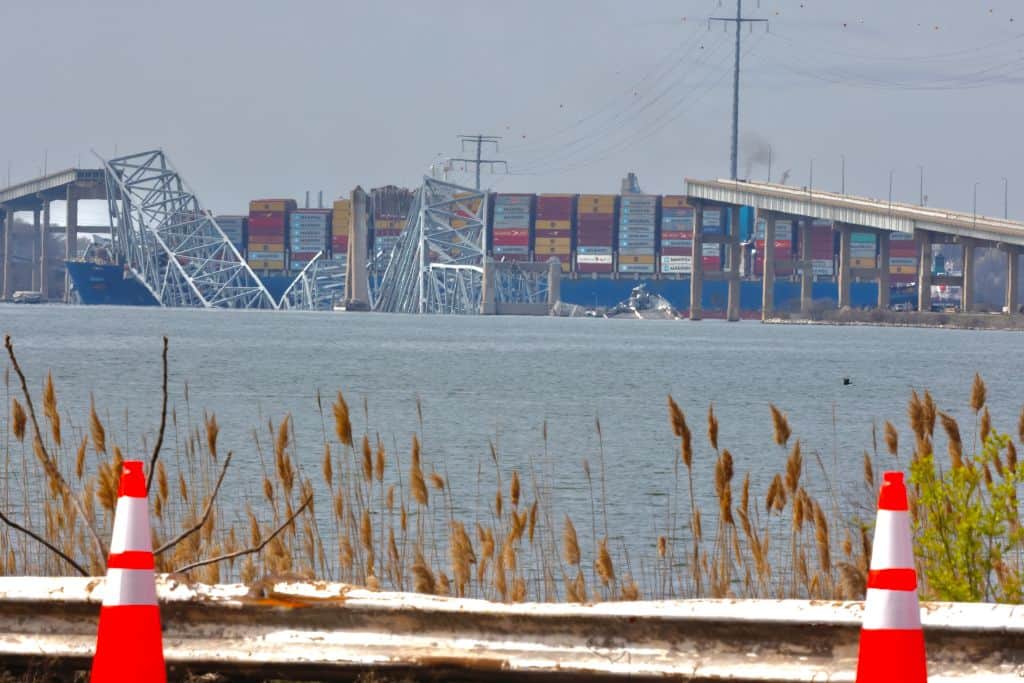Baltimore Bridge Collapse to Hit Shipping, Port Jobs

Vessel traffic in and out of the Port of Baltimore—which contributes $15 million a day in economic activity, Business Insider reports—was suspended Tuesday after a container ship hit the Francis Scott Key Bridge in the early morning. The collision caused the bridge to collapse, sending at least seven vehicles and their occupants into the Patapsco River, according to the Baltimore Sun (subscription).
What’s going on: “Officials, who spoke amid a continuing and massive search and rescue mission, said the port was not shut down and remained open to process trucks inside terminals.”
- Other ports are likely to be able to absorb container ships headed for Baltimore, The New York Times (subscription) reports.
Why it’s important: “The port, which generates more than 15,300 direct jobs, had rebounded from global supply chain difficulties and disruptions during the coronavirus pandemic and hit records last year for handling cargo,” according to the Baltimore Sun. “It is the nation’s 16th busiest port, ranking first for volume of autos and light trucks, roll-on/roll-off heavy farm and construction machinery, imported sugar and imported gypsum.”
- Baltimore is the closest Atlantic port to major Midwestern manufacturing hubs.
- Truckers are concerned about increased congestion resulting from the closure, “particularly because deliveries such as hazardous material loads cannot travel through Interstate 895 or I-95 tunnels.” Trucking companies are already warning customers of delays for shipments going through the Mid-Atlantic, according to The Wall Street Journal (subscription).
- In addition to affecting consumers in the Baltimore area, the traffic stoppage is likely to affect jobs at the port.
